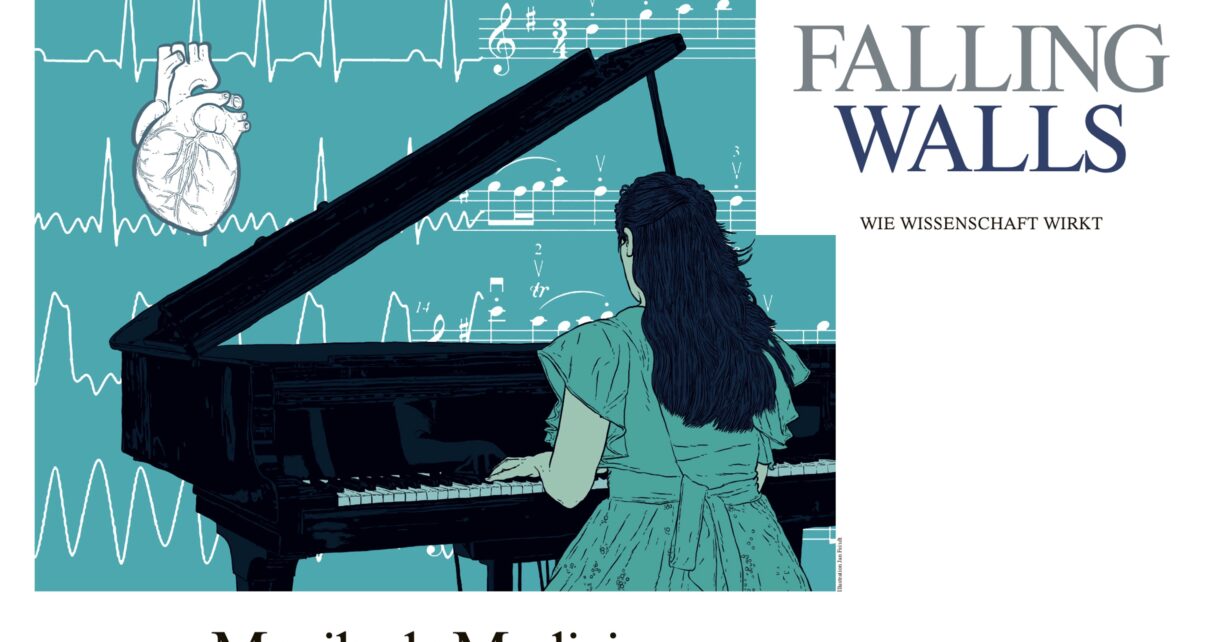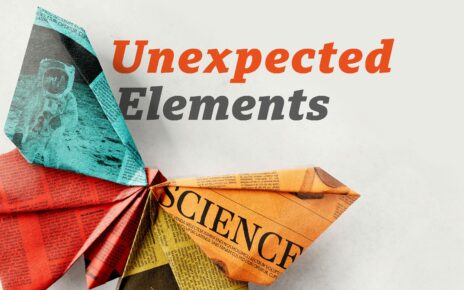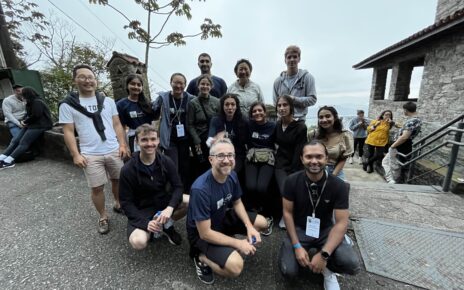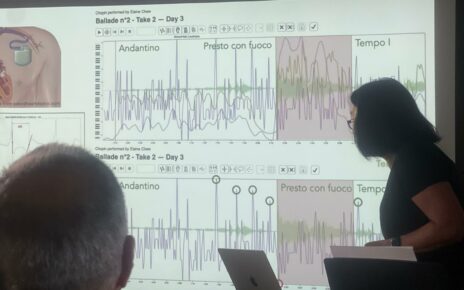Johanna Kuroczik interviews Elaine Chew for the Falling Walls Special Edition of the Frankfurter Allgemeine (16 November 2023) : www.faz.net/aktuell/wissen/medizin-ernaehrung/herzrhythmusstoerungen-musik-als-medizin-fuer-herzkranke-19316760.html . The English translation of the interview is reproduced below.
Music As Medicine
Songs, rhythms and chords influence our feelings – and also our bodies.
Elaine Chew is researching whether music can help with heart disease.
She has turned her own arrhythmias into concerts.
17 November 2023 (English translation with help of DeepL)
JK: Elaine Chew, you are a pianist and a mathematician at King’s College London and are now researching with medical professionals on how music can affect the heart. First of all, does something physically happen in our bodies when we listen to music?
EC: Yes, quite a lot actually! In our research we focus on the reactions of the body and especially the autonomic nervous system to music, for example how heart rate, breathing and blood pressure change. We are interested in analyzing practically everything cardiovascular that can be measured in our volunteers whilst they are listening to music.
JK: What exactly are the physical effects of music?
EC: Music can, for example, make our hearts beat faster or make us to hold our breath. It calms us down, but it can also stir us up. For a long time, these physical effects were attributed to emotions. However, emotions are difficult to record and measure accurately in a systematic way. That is why we bypass them to a certain extent to focus on physiology. Cardiologists are interested in the effect of music on the autonomic nervous system, as disorders of the latter are linked to heart disease.
JK: Earlier in your career, you already combined music and mathematics, didn’t you?
EC: I developed a mathematical model for tonality, the spiral array model. This is a geometric representation of pitches and how they then combine to form chords which in turn combine to form keys in the same three-dimensional space. This is represented in a series of nested helices.
JK: How did you come to the topic of health?
EC: I suffered from cardiac arrhythmia myself. Since a child, I had supraventricular tachycardia. My heart would beat so fast the brain no longer receives enough oxygen and I would see stars. It was very unpleasant. This was cured by a procedure called ablation, radio frequency ablation. Then, I developed atrial fibrillation, a fast and irregular heart rhythm. I was again cured by ablation, this time by cryoablation. Many ECGs were taken during that time. I was fascinated by this data. It gave me the idea of using my irregular heart rates as rhythms for music. The music was collaged from fragments of music matching the irregular beats. This resulted in pieces that I performed at several concerts. But my cardiologists were more interested in the question: How can music influence the heart? That’s what I’m working on now.
JK: And what is the status of your research?
EC: We have measured the reactions of many people while they listened to music in the laboratory. We are interested in what happens when you change the performance of the notes – the kinds of parameters musicians manipulate to create an interpretation. The notes remained the same, but we adjusted expressive parameters like the speed. The volunteers often do not notice that they were listening to the same piece after these transformations. We are currently analyzing this data. Every person is influenced differently by certain music. So the next step is to tailor to models to individual experiences.
JK: Can these findings already be put to practical use?
EC: In the age of computers and algorithms, we can achieve a lot with our data. We are working on an app for personalized music therapy. This will hopefully help individuals to make their hearts more resilient.
JK: The Falling Walls conference is about breaking down new barriers through science. What wall is your research breaking down?
EC: If we understand how music affects the heart, we can use it to treat cardiovascular diseases and their risk factors like high blood pressure. This could improve heart health with little or no side effects. After all, heart disease is one of the leading causes of death worldwide. Our research will enable a better understanding of the musical experience. It is difficult to measure the experience of music. But we have developed models and tools to characterize musical structures and visualize how they are experienced in time.
JK: If you dream about the future: is your goal to cure cardiac arrhythmia through music?
EC: Healing would be a very big step. We are not saying that we want to go that far at the moment. But arrhythmias are often triggered by stress or pronouced changes in the autonomic nervous system. Music can alleviate stress and modulate the autonomic nervous system, and thus influence the risk of cardiac arrhythmias. There are also positive effects on blood pressure. In the future, we hope that music will one day be a common means of preventing and treating cardiovascular disease.
Questions by Johanna Kuroczik.




